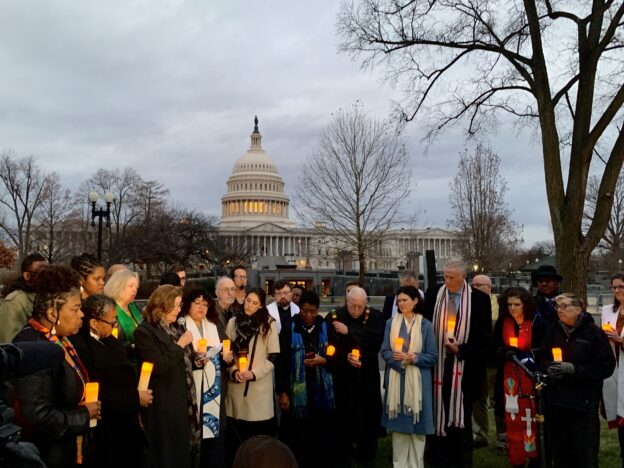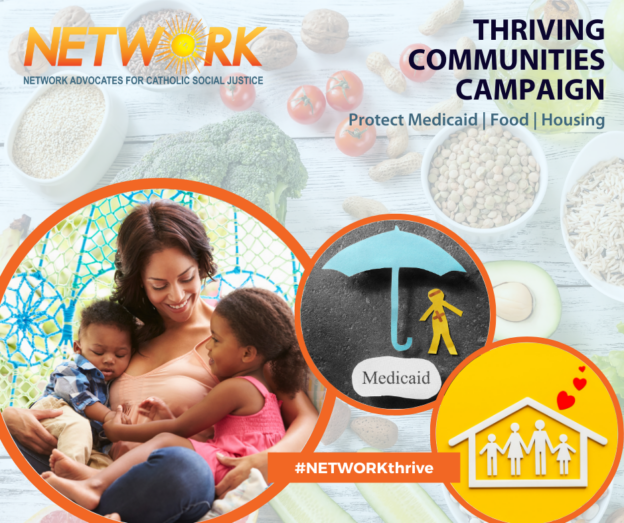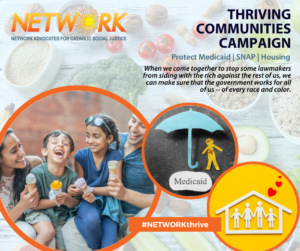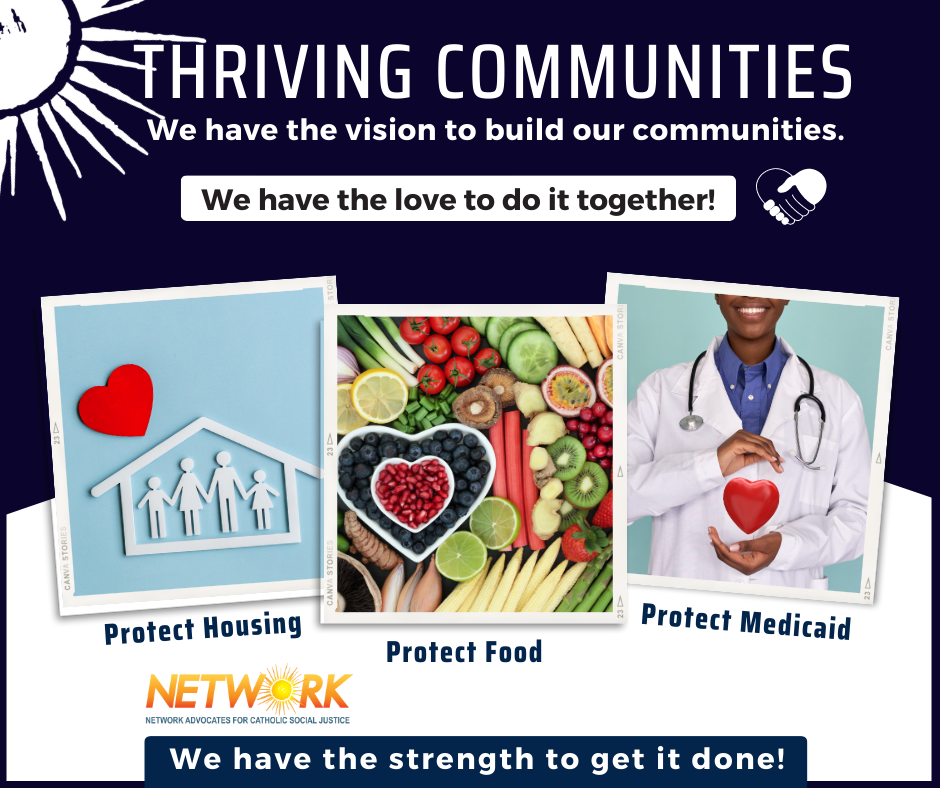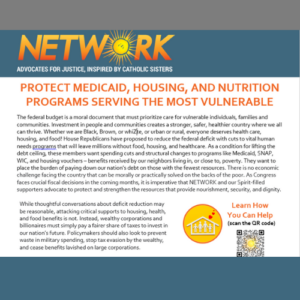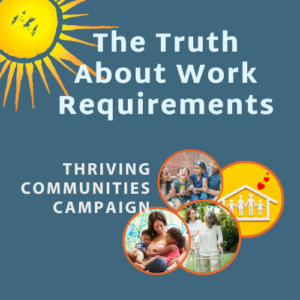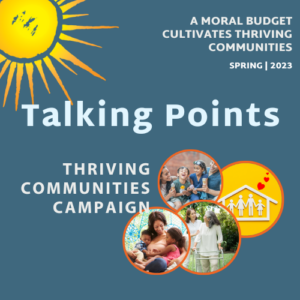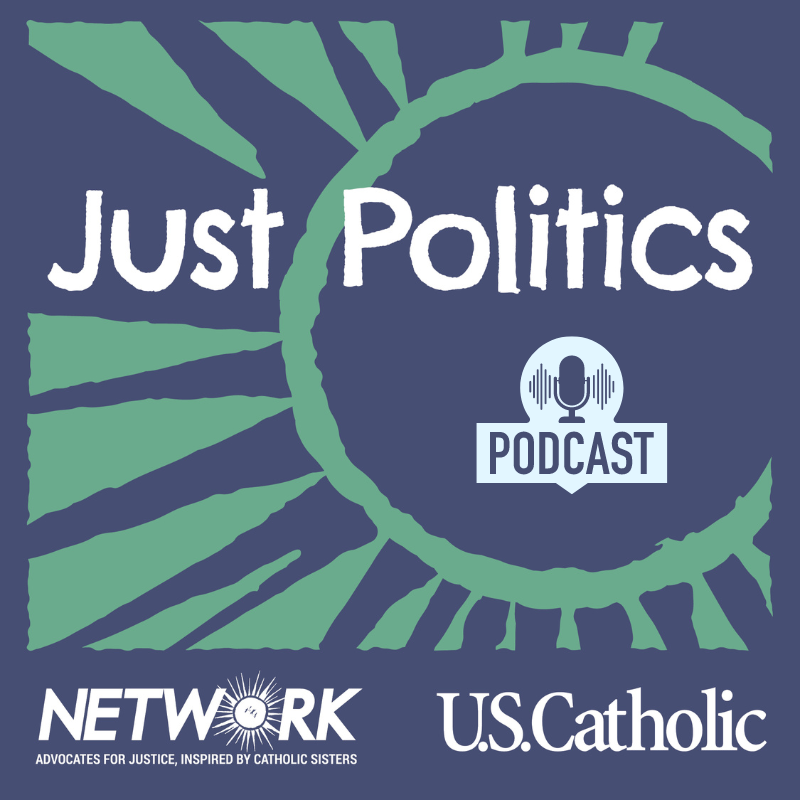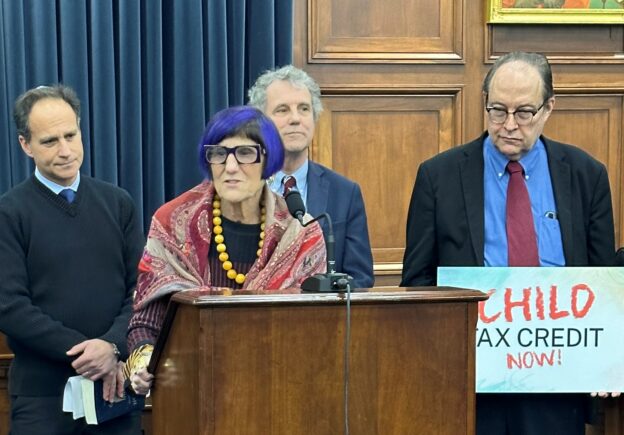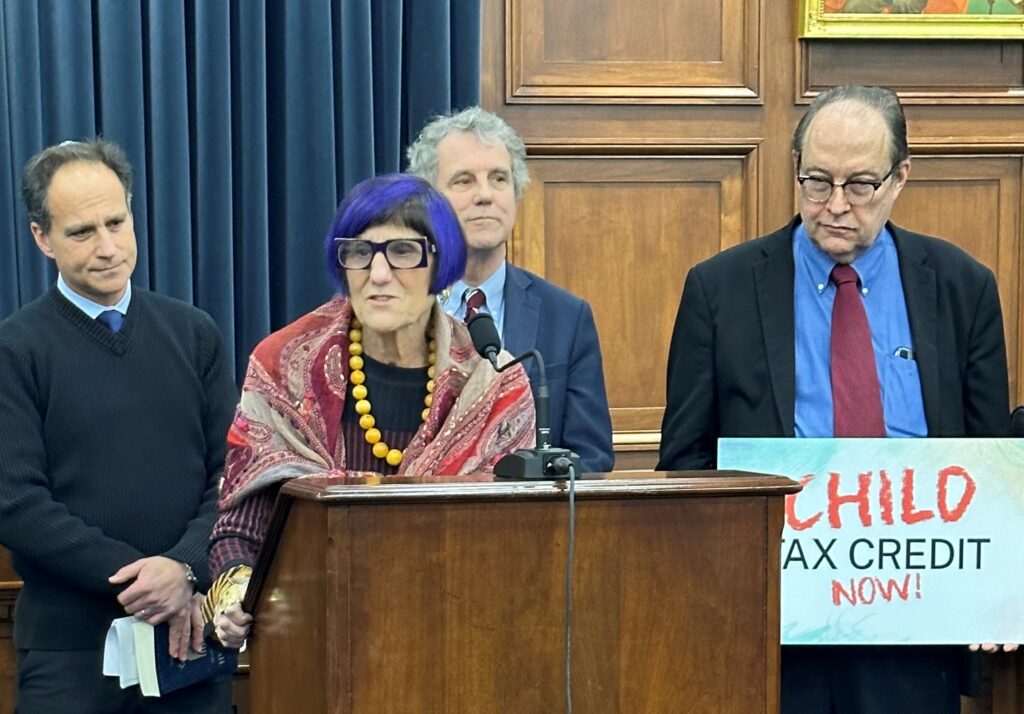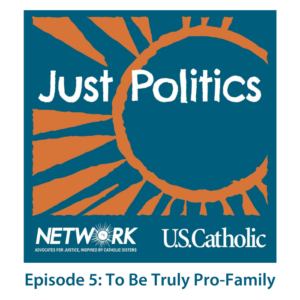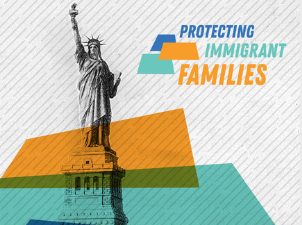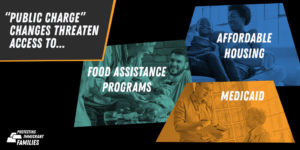
The Path to Transformation
Mary J. Novak
March 29, 2023
Readings for Palm Sunday:
Is 50:4-7
Ps 22:8-9, 17-18, 19-20, 23-24
Phil 2:6-11
Mt 26:14-27:66
Through the Lenten Scriptures, we are reminded over and over again that everything Jesus touches is radically and forever transformed. That is the gift of the Incarnation. As we contemplate the depths of the Paschal Mystery this week, the suffering and death of Jesus at the hands of the state, we must open ourselves to the possibility that transformation can still break into the systems and structures of our politics. But this will not happen automatically; it will require deep, persistent, and sometimes difficult work.
The prophet Isaiah says, “The Lord has given me a well-trained tongue, that I might know how to speak to the weary a word that will rouse them.” This resonates with the work of our Spirit-filled network, seeking to encourage our fellow justice-seekers even as we face exhausting realities, including emboldened and public displays of racism, open hostility to the democracy and the rule of law, and unprecedented socioeconomic inequality that undermines our whole society.
“My God, why have you abandoned me?” Jesus prayed from the cross. The political system of his day was unjustly used to kill the Son of God. And as we confront those who profit from exploiting and oppressing others, including us, we must remember that God has not forsaken any of us. Brokenness infects our politics, yes, but it does not have the last word.
Pope Francis calls for a better kind of politics, and answering that call means learning ways of finding God in the mess. Jesus showed us, in the words of Henri Nouwen, that “The divine way is indeed the downward way.” This means being present to those of us most held down by our systems and structures, intentionally engaging in processes of truth-telling, reflection, and ultimately reparation. We do not get to reparatory justice, true repair of society, without changing structures and breaking the inequities that have spiraled for far too long—and that starts with truth-telling. Once we embark on this work, true transformation begins.
Additional Resources
Be part of the transformation of our politics and protect Medicaid, housing, and nutrition programs from disastrous cuts by joining NETWORK’s Thriving Communities campaign — coming soon!







